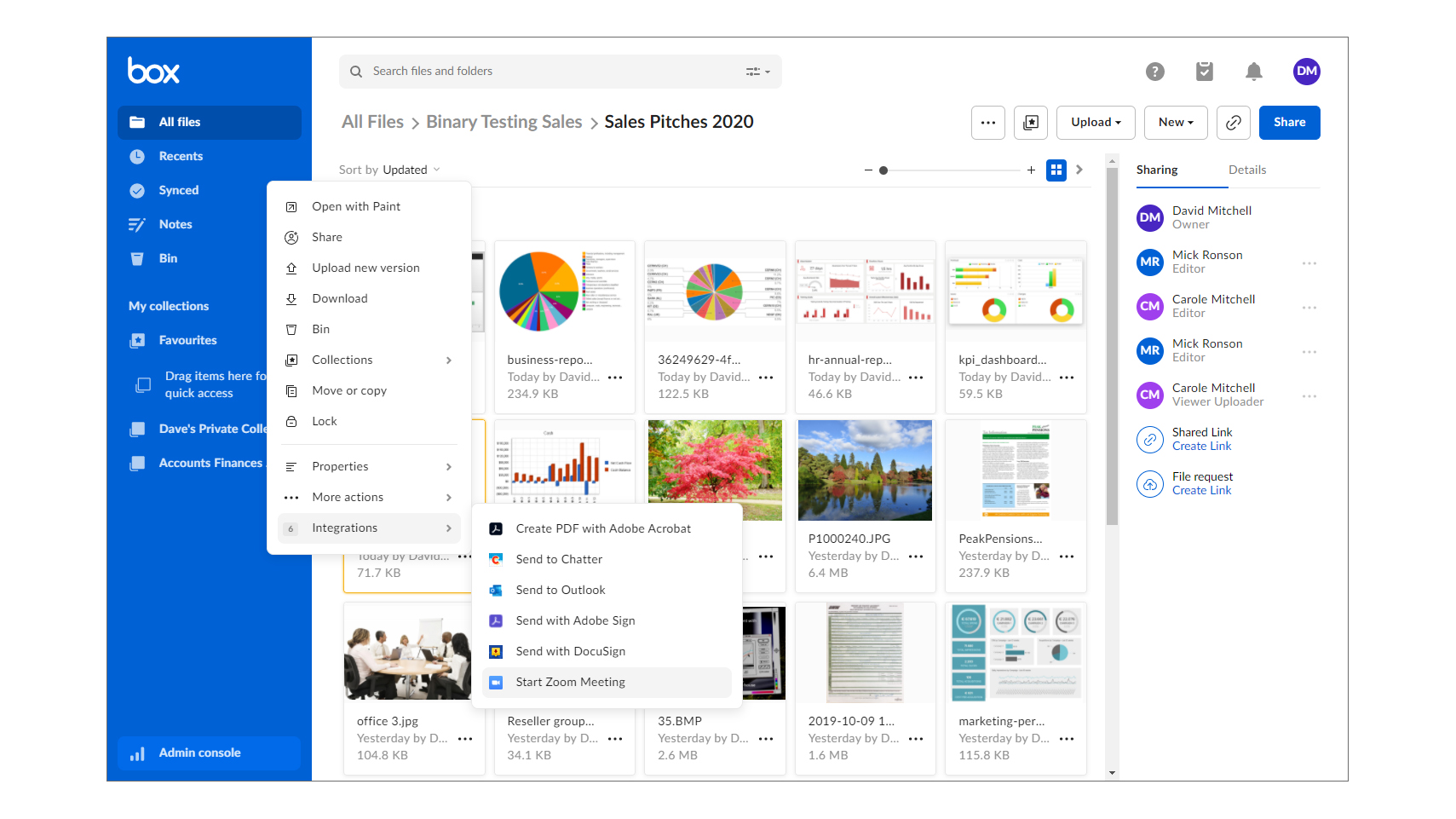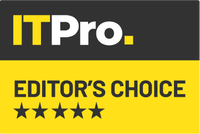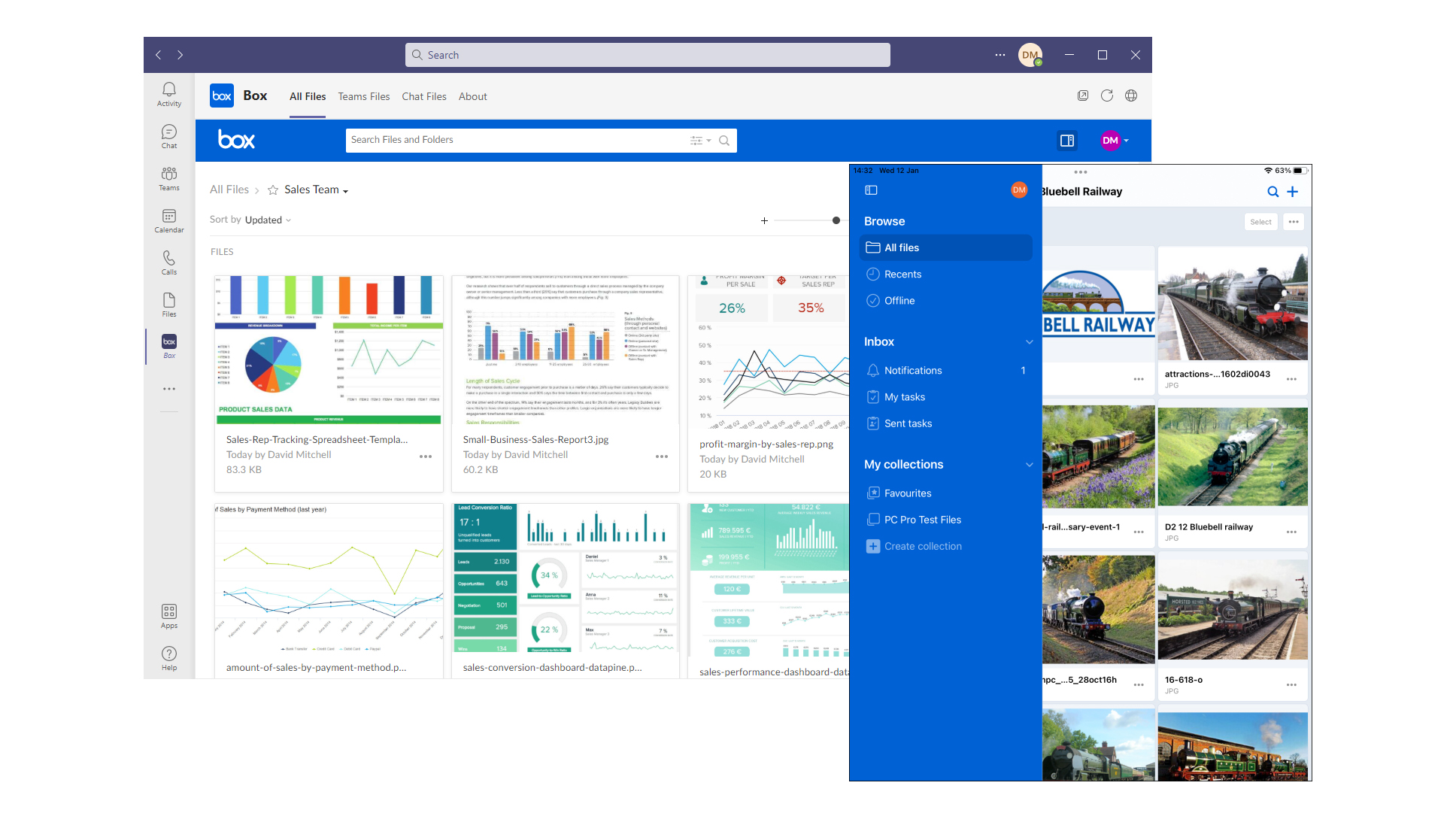Box Business review: A terrific package
A great all-round service, with powerful collaboration tools and unlimited storage for a good price


The transition from the Sync to Drive apps does complicate deployment, but there’s no denying Box Business is offering a superb range of file sharing and cloud collaboration features. It’s remarkably easy to manage, offers great access security and is highly recommended for businesses of all sizes.
-
+
New integrations with services including Zoom & Google Workspace
-
+
Slick UI redesign
-
+
New file preview tools
-
-
5GB maximum upload size

Box has always been one of the top business file-sharing and collaboration solutions, and it’s recently added a raft of features aimed at improving the lives of remote workers. One notable arrival is Box Collections, which lets users organise their files, folders and web links into custom groupings, without having to actually move the items around between shared folders.
Then there’s the new Box Preview screen, which lets you browse and annotate cloud documents without needing to download them or open the parent application. The Box web portal, meanwhile, gets a fresh coat of paint, and there’s integration with the Zoom videoconferencing platform for extra convenience.
Box offers four plans. The basic Starter tier costs £4 per user per month (assuming you pay yearly), while the Business, Business Plus and Enterprise options cost £12, £20 and £28 respectively. All three business tiers include unlimited cloud storage, with the ability to retain and restore up to 50 file versions. The only real restriction is a maximum 5GB file upload size: that’s smaller than many rivals offer, but should still be enough for most businesses.
One thing we like about Box is its wealth of management tools, which include advanced user and security reporting, custom portal branding and Active Directory and single sign-on integrations. Getting your team members enrolled is a simple matter of sending them an invitation email; this contains a link enabling them to set a password, after which they can install the local agent and log in to their personal cloud portal.
At this point, those who’ve used Box before may need to relearn a few things. The old Box Sync software has been replaced by the new Drive app: by default this now keeps all files and folders in the cloud, although items can be marked for offline access if you want to retain a local copy.

As mentioned, the web portal has been redesigned too. Happily, the new layout is easy to get to grips with, opening with a tidy view of your folders and recent documents. Your own collections of cloud content can also be pinned here: to add a file to a collection, you simply browse to its original location, then choose a collection from the dropdown menu. Your collection can then be added to the portal’s homepage with a click.
Another neat online feature is the new Preview screen. This isn’t just for quickly checking the contents of a file: if you add comments to a cloud document, they’ll be visible to all other users with shared access. With the Box Tools component, you can even edit Office documents directly from the preview screen.
On that note, desktop integrations for Google Workspace, Microsoft 365 and Teams are included as standard. The Box for Office add-in lets users access cloud files directly from any Office app, while new options appear in Outlook for sharing cloud files and uploading attachments.
Box can even integrate with a range of external services, including Adobe Document Cloud, Salesforce and Slack. The regular Business plan lets you enable one such integration, while Business Plus users get three.
A final interesting feature is the ability to initiate Zoom conferences from the Box portal. After we’d picked a set of invitees, we were smoothly transferred to the Zoom interface, while colleagues received an email link enabling them to join the call.
The 5GB file size limit may be a deal-breaker for some, but with great app integrations, smart collaboration tools and unlimited storage, Box Business is a terrific package. The price is right too, and the latest feature updates only make an already strong product even better.
Get the ITPro daily newsletter
Sign up today and you will receive a free copy of our Future Focus 2025 report - the leading guidance on AI, cybersecurity and other IT challenges as per 700+ senior executives
Dave is an IT consultant and freelance journalist specialising in hands-on reviews of computer networking products covering all market sectors from small businesses to enterprises. Founder of Binary Testing Ltd – the UK’s premier independent network testing laboratory - Dave has over 45 years of experience in the IT industry.
Dave has produced many thousands of in-depth business networking product reviews from his lab which have been reproduced globally. Writing for ITPro and its sister title, PC Pro, he covers all areas of business IT infrastructure, including servers, storage, network security, data protection, cloud, infrastructure and services.
-
 ‘Phishing kits are a force multiplier': Cheap cyber crime kits can be bought on the dark web for less than $25 – and experts warn it’s lowering the barrier of entry for amateur hackers
‘Phishing kits are a force multiplier': Cheap cyber crime kits can be bought on the dark web for less than $25 – and experts warn it’s lowering the barrier of entry for amateur hackersNews Research from NordVPN shows phishing kits are now widely available on the dark web and via messaging apps like Telegram, and are often selling for less than $25.
By Emma Woollacott Published
-
 Redis unveils new tools for developers working on AI applications
Redis unveils new tools for developers working on AI applicationsNews Redis has announced new tools aimed at making it easier for AI developers to build applications and optimize large language model (LLM) outputs.
By Ross Kelly Published
-
 Google layoffs continue with "hundreds" cut from Chrome, Android, and Pixel teams
Google layoffs continue with "hundreds" cut from Chrome, Android, and Pixel teamsNews The tech giant's efficiency drive enters a third year with devices teams the latest target
By Bobby Hellard Published